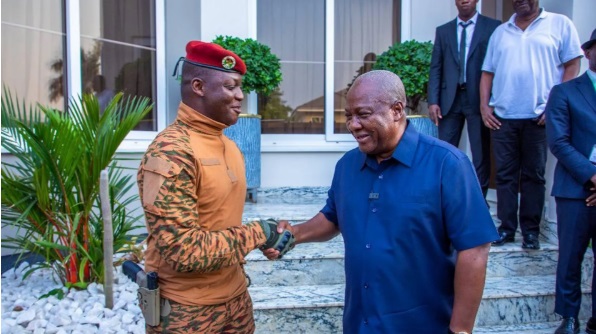Ghana's quest for sustainable economic growth requires innovative strategies that integrate diplomacy, regional cooperation, and global trade engagement.
The government's proactive steps to reinforce diplomatic relations and strengthen trade ties are crucial for positioning Ghana as a leading economic force in Africa. The following strategic initiatives are essential to achieving this vision.
1. Reintegration of Burkina Faso, Mali, and Niger into ECOWAS
Stability within the West African region is critical for economic progress.
By leading efforts to reintegrate Burkina Faso, Mali, and Niger into the Economic Community of West African States (ECOWAS), Ghana can foster regional peace and security.
A stable region promotes cross-border trade, infrastructure development, and investment flow.
Ghanaian businesses will benefit from broader market access, reduced trade barriers, and enhanced cooperation in energy, agriculture, and transportation.
2. Leveraging the AfCFTA Secretariat for Industrialization
Hosting the African Continental Free Trade Area (AfCFTA) Secretariat positions Ghana as a central hub for continental trade.
By strategically coordinating with stakeholders, Ghana can attract industries, stimulate local manufacturing, and expand export capacity.
This initiative can transform Ghana into a transport and investment hub, boosting job creation and economic diversification. Increased industrial activity will also foster value addition in key sectors like agriculture and mining, driving sustainable growth.
3. Formulating an Economic Diplomacy Blueprint
A well-crafted economic diplomacy blueprint will align Ghana’s foreign policy with its development agenda.
This policy guide will equip diplomats and foreign service staff with clear objectives focused on promoting trade, attracting investment, and forming strategic partnerships. Such a blueprint ensures that Ghana’s diplomatic missions are actively contributing to national economic goals, streamlining efforts across various global markets.
4. Reassessing Diplomatic and Consular Missions
Ghana must strategically reappraise its diplomatic missions to maximize economic benefits. Establishing new embassies and consulates in economically significant regions can strengthen trade ties, attract investments, and open new markets for Ghanaian exports.
This approach ensures that diplomatic resources are directed towards high-impact regions, enhancing global economic engagement.
5. Deepening Engagement with Francophone and UEMOA Communities
Ghana’s geographical position offers a unique advantage for strengthening relations with Francophone countries and the West African Economic and Monetary Union (UEMOA).
Active participation in these communities can facilitate smoother trade relations, improved policy harmonization, and greater access to regional markets. This strategy can significantly boost exports and cross-border investments, contributing to regional economic integration.
6. Appointing Trade Attachés to Key Diplomatic Missions
Deploying dedicated trade attachés in select diplomatic missions will aggressively market Ghana’s trade and investment potential. These officers will spearhead strategies to attract foreign direct investment (FDI), promote Ghanaian products, and facilitate international business partnerships.
This targeted approach will enhance Ghana's global competitiveness and stimulate economic activity across priority sectors.
Conclusion
Strategic diplomatic initiatives are vital for Ghana’s economic transformation.
By fostering regional stability, leveraging its AfCFTA advantage, and strengthening global trade ties, Ghana can accelerate industrialization, attract investments, and diversify its economy. These forward-thinking policies will position Ghana as a beacon of economic progress in Africa, ensuring long-term growth and prosperity.
Writer's email: issamonnie@gmail.com

